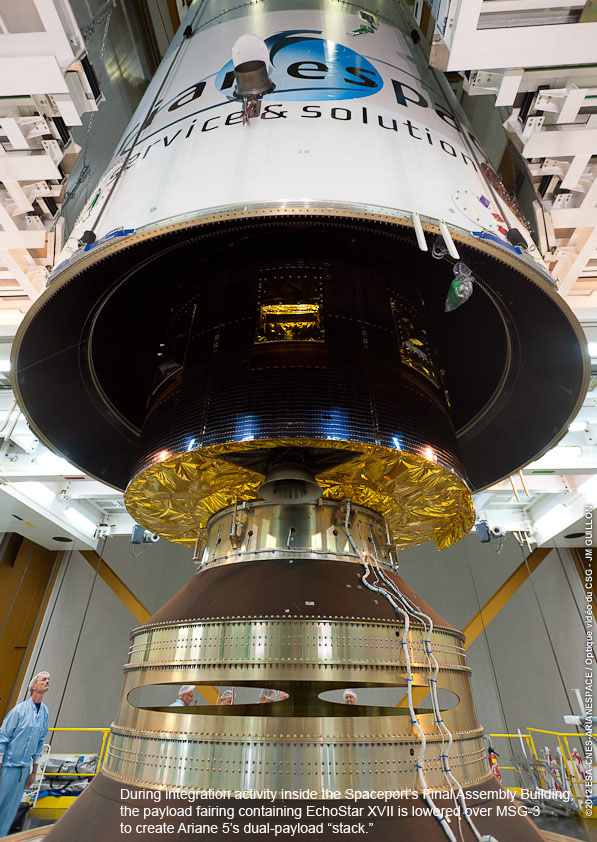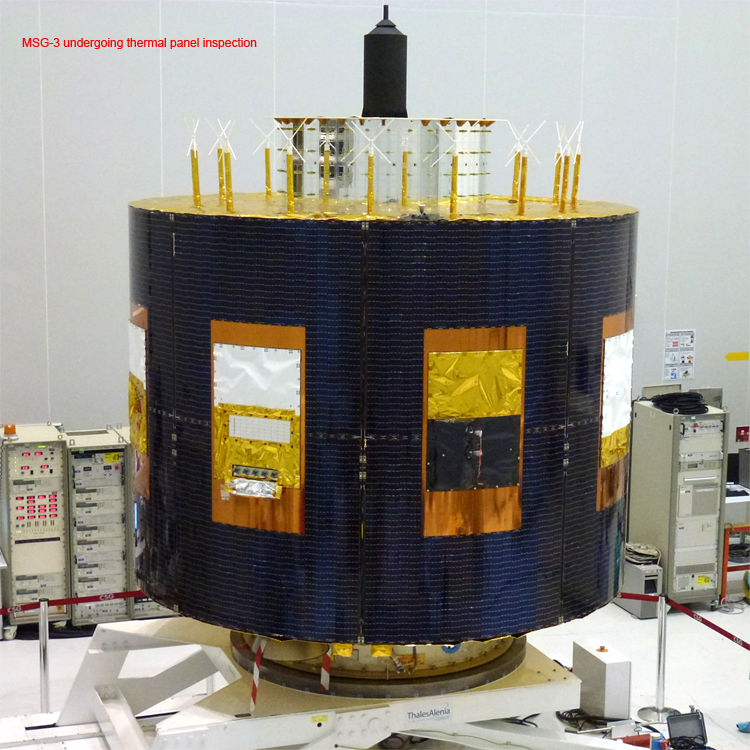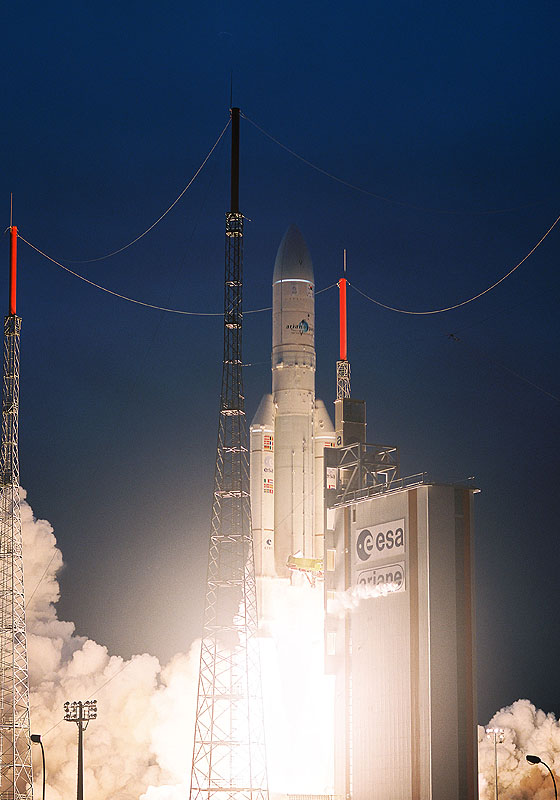
The EchoStar XVII telecommunications platform has joined its MSG-3 co-passenger on Arianespace’s third Ariane 5 for launch in 2012, marking a key preparation milestone for this July 5 heavy-lift mission from the Spaceport in French Guiana.
Encapsulated in its ogive-shaped payload fairing, EchoStar XVII was lowered into place yesterday over the MSG-3 meteorological satellite – which was installed atop Ariane 5’s cryogenic core stage earlier in the week. The latest integration activity was performed inside the Spaceport’s launch vehicle Final Assembly Building.
With this new milestone, the Ariane 5’s dual payload “stack” has now been completed, clearing the way for final steps that will include functional tests, launch rehearsal and launch vehicle arming – followed by a readiness review and rollout to the Spaceport’s launch zone for an evening liftoff on July 5.
Ariane 5 is to deliver a payload lift performance of more than 9,600 kg. during the upcoming mission, which includes a combined total of over 7,500 kg. for the EchoStar XVII and MSG-3 spacecraft, plus the launch vehicle’s dual-passenger dispenser system and satellite integration hardware.
EchoStar XVII – which is based on Space Systems/Loral’s powerful 1300 series satellite platform – will be operated by Hughes Network Systems, and it is to deliver broadband services to consumers, businesses and government customers across North America. Weighing approximately 6,100 kg. at liftoff, the spacecraft employs a multi-spot beam, bent-pipe Ka-band architecture that provides significant additional capacity for Hughes.
MSG-3 was produced by an industry consortium led by Thales Alenia Space, for operation by EUMETSAT (the European Organisation for the Exploitation of Meteorological Satellites). It has a liftoff mass of approximately 2,000 kg., and will operate in geostationary orbit after its deployment by Ariane 5 – providing highly detailed imagery of Europe, the North Atlantic and Africa for use by meteorologists and national weather forecasters.



4823 Views

